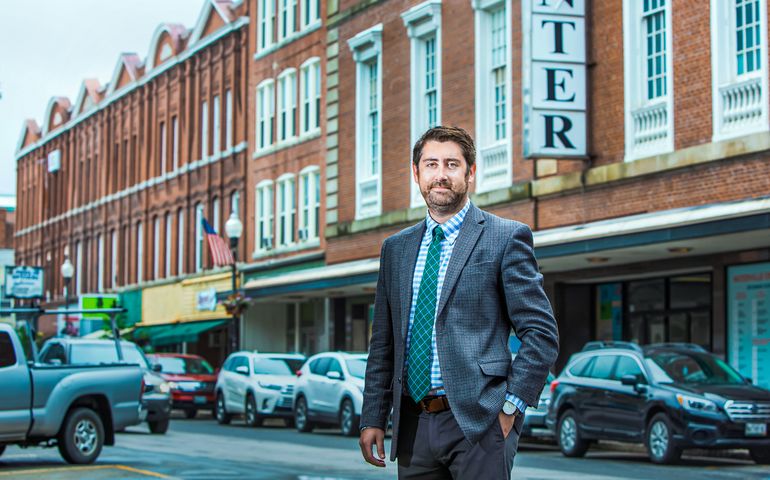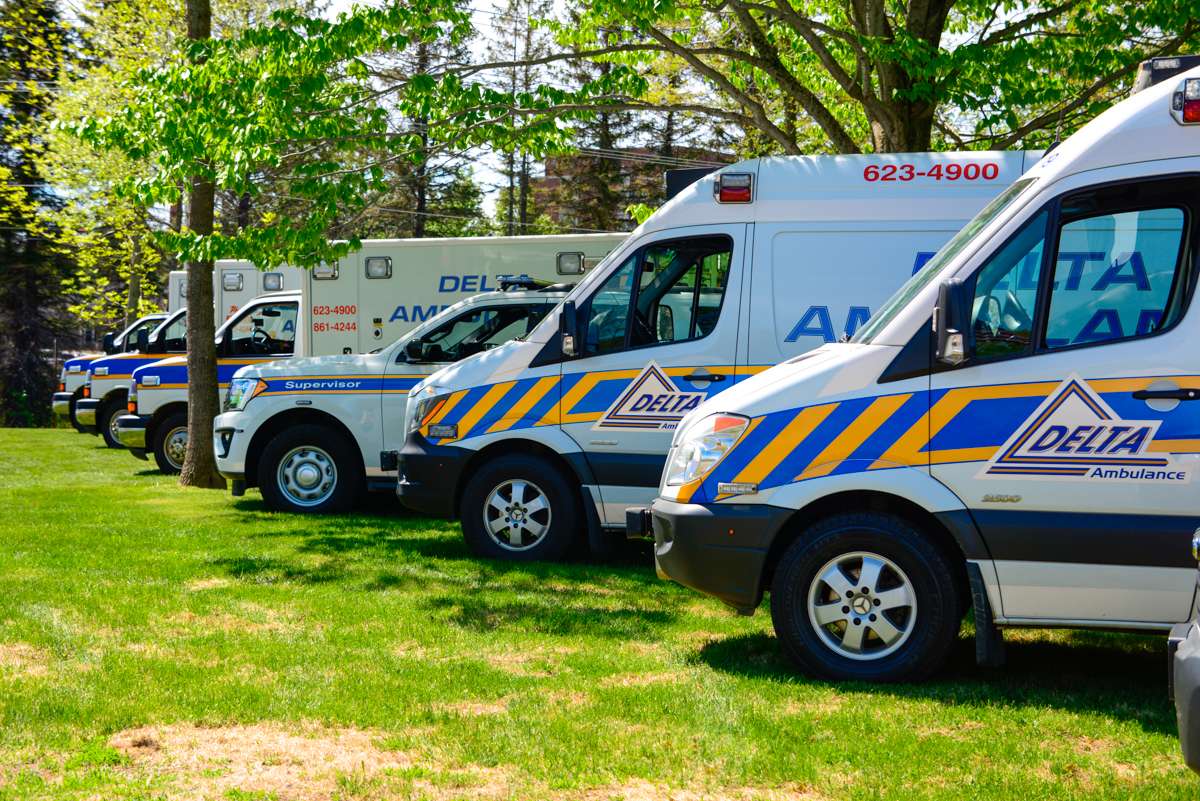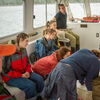
Startups, downtown activity are now central to the central Maine economy
 Photo / Tim Greenway
Garvan Donegan, director of planning and economic development for the Central Maine Growth Council, says that a record $125 million-plus invested in downtown Waterville has catalyzed local economic growth. He sees the downtown boom continuing.
Photo / Tim Greenway
Garvan Donegan, director of planning and economic development for the Central Maine Growth Council, says that a record $125 million-plus invested in downtown Waterville has catalyzed local economic growth. He sees the downtown boom continuing.
From downtown development to robust home sales in the greater Augusta area, all signs point to a strong regional economy with good prospects to weather the current storm.
Waterville alone has welcomed close to 20 new businesses downtown in the past few years, including several retail stores, an IT provider, a craft brewer, a biotech firm and Bricks Coworking & Innovation Space.
They will soon be joined by a handful more, including two businesses in late-phase negotiations with the Central Maine Growth Council that are targeting a summer or early fall downtown opening, according to Garvan Donegan, the council’s director of planning and economic development.
He says a record $125 million invested downtown has been a catalyst for local growth, and he is cautiously optimistic about the near term as businesses start to reopen.
“Now it’s about bringing back the workforce and thinking how we can be productive,” he says. “We do believe Waterville, and the mid-Maine region as a whole, has good resilience.”
Donegan says a lot of that has to do with having a diversity of businesses including locally owned startups looking to grow, and attributes Waterville’s watershed to a mix of funding, infrastructure, education and tech talent provided by partners including Colby and Thomas colleges, the Kennebec Valley Community College (KVCC), Maine Technology Institute and Bricks.
With all those put together, he says, “we are building a robust workforce and innovation corridor that attracts talent, utilizes Waterville’s entrepreneurs and upward population increases, and serves as a growth pad for business.”
He also says, “We’re very fortunate to have our students part of our startup energy in Waterville.”
Much of that energy is coming from two Colby student ventures that recently received grants from MTI — app-based food-delivery platform Easy Eats and online marketplace Sklaza — with ambitions to grow.
Easy Eats co-founder Christian Krohg says the business will be at Colby, Bates and Middlebury colleges this fall, while Sklaza founder Josh Kim aims to expand to multiple schools in the region.
Both entrepreneurs are rising juniors originally from Massachusetts in Colby’s class of 2022, and say they’re open to staying in Maine after graduation.
“I love everything about Maine,” says Krohg, a double economics and music major who says he’s benefited from collaboration at Bricks. Kim, a double major in product design and sociology, praises Maine’s strong ecosystem for entrepreneurs and the community as a whole, adding: “People are there to look out for each other.”


MTI President Brian Whitney, whose organization awarded Easy Eats $10,000 and Sklaza $3,300, attributes the increase in innovation coming out of the Waterville region in part to the influence of the two colleges there.
“I would also like to think that the office space MTI has been leasing for the past year at the Mid-Maine Chamber of Commerce in Waterville might also have helped raise our profile in the region and led to greater interest in innovation,” he says.
Mixed picture elsewhere
Elsewhere in the region, owner Bill Sprague of Sprague & Curtis Real Estate in Augusta reports strong demand from residential buyers in the past month and a half, saying that while things were slow during COVID, “now it’s coming back … If this keeps up, it probably will be equal to or better than last year.”
The situation is markedly different for Delta Ambulance, a Waterville-based nonprofit serving 17 towns in the greater Augusta-Waterville area. Its call volume has been low during the pandemic.

“It’s picked up a little, but not anywhere near where it used to be, primarily because the hospitals haven’t fully opened yet,” says Executive Director Tim Beals, a Thomas College MBA alumnus. “People are more comfortable calling 9-1-1 than they were, but the hospitals are not yet fully back to capacity.”
While he’s been able to keep all 120 employees on standard hours, he worries about filling several current openings, and hopes that students will be able to take their EMS tests soon so that they can come into the workforce. “There was a shortage before the pandemic,” he says, “and it’s even more dire now.”














0 Comments